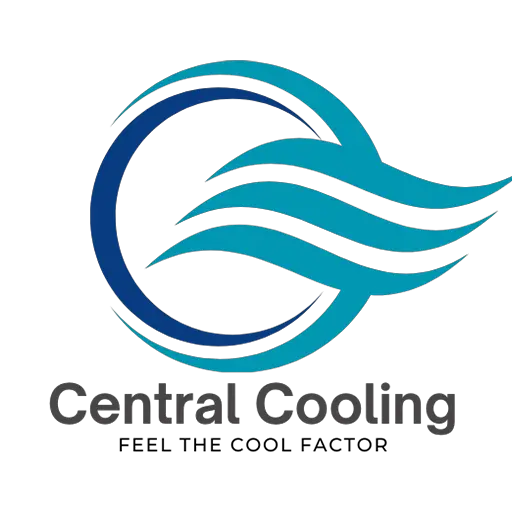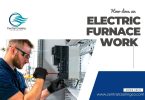Introduction
When investing in a generator, the primary concern is often whether it can weather the storms and keep your home safe and warm. A common query arises: Can a generator efficiently run an electric furnace? In this comprehensive exploration, we delve into the wattage requirements, generator types, and operational considerations to ensure your electric furnace remains a reliable source of warmth during power outages.
Can a Generator Power an Electric Furnace?
The crux of the matter lies in understanding the wattage needs of your electric furnace. To effectively heat your home, an electric furnace typically requires a substantial power supply, generally around 15,000 watts or more. It becomes paramount, then, that the generator you choose possesses sufficient wattage to meet this demand; otherwise, the risk of inadequate heating during power outages becomes a genuine concern.
Generator Wattage and Furnace Needs
Before delving further, it’s essential to assess the wattage requirements of your electric furnace. If your generator falls short of delivering the necessary power, you may find yourself facing a chilly home during crucial times. Fortunately, some stationary generators are designed to meet the demanding needs of electric furnaces. In contrast, smaller portable generators, commonly used for backup power, may not offer adequate wattage for efficient heating.
Portable Generators vs. Standby Generators
For those who already own a portable generator, the question of its suitability for powering an electric furnace arises. Portable generators, while versatile and capable of providing power for lights and basic appliances, may lack the necessary wattage to meet the demands of an electric furnace. It’s imperative to check the generator’s wattage capacity, as smaller models might prove insufficient for comprehensive home heating.
1. Operating Costs of Electric Furnaces
Electric furnaces, while effective in heating homes, often come with higher operating costs. These furnaces rely heavily on electricity from the local grid, translating to significant electricity consumption and subsequently higher monthly bills. However, it’s essential to note that the initial installation costs of electric furnaces are generally lower than alternatives like propane furnaces. Evaluating the long-term costs and potential savings over the life of the furnace is crucial for making informed decisions.
2. Comparing Electricity and Propane for Heating
When considering cost-effectiveness, natural gas or propane furnaces often outshine electric furnaces in terms of monthly expenses. While gas furnaces may have higher installation costs, the lower monthly operational costs can make them a more economical choice. However, it’s essential to be aware of the trade-offs, such as the shorter lifespan of gas furnaces compared to their electric counterparts.
3. Maximizing the Efficiency of Electric Furnaces
If you’ve opted for an electric furnace as your heating solution, maximizing its efficiency becomes a key consideration. Here are some strategies to keep your home warm while ensuring optimal performance:
i. Regular Furnace Maintenance
While electric furnaces boast a longer lifespan, regular maintenance is crucial. Establish a relationship with a local professional to schedule routine furnace maintenance. Regular inspections and upkeep can prevent potential issues, ensuring your furnace remains operational throughout the year.
ii. Duct Inspection
In addition to furnace maintenance, pay attention to the condition of your ducts. Leaks in ducts can lead to heat loss, making your furnace less effective. Collaborate with experts to identify and address any duct leaks, enhancing the overall efficiency of your electric furnace.
iii. Insulation
Effective insulation is integral to maximizing the performance of your electric furnace. If your property lacks adequate insulation or if it’s been several years since the last inspection, consider investing in additional insulation. Consult with local contractors to assess and replace insulation, ensuring your home retains heat efficiently.
iv. Addressing Leaks
Water and ice can contribute to lower temperatures in your home. Regularly inspect your foundation, basement, or crawl space for any signs of damage. Promptly addressing issues like cracks, foundation subsidence, or leaks can prevent unnecessary cooling and ensure your electric furnace operates in optimal conditions.
v. Utilize Ceiling Fans
Ceiling fans can play a role in distributing warm air throughout your home. During colder weather, reverse the rotational direction of your ceiling fans. This helps push warm air away from the ceiling, promoting more efficient circulation and heating.
vi. Generator Power
Finally, for those relying on a generator during power outages, ensuring it possesses ample wattage is essential. A generator with at least 10,000 watts is recommended to effectively keep your home warm when powered by an electric furnace.
Conclusion
In conclusion, the successful operation of an electric furnace with a generator involves careful consideration of wattage requirements, generator types, and operational strategies. Understanding the cost implications, comparing heating options, and implementing measures to maximize furnace efficiency contribute to a well-rounded approach to home heating. Whether you choose a portable or standby generator, and regardless of your preferred heating method, a thorough understanding of these factors ensures a warm and comfortable home even in challenging circumstances.
Disclosure: We may get commissions for purchases made through links in this post.








